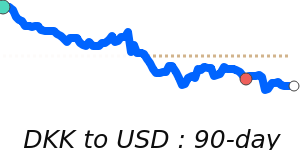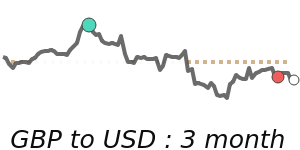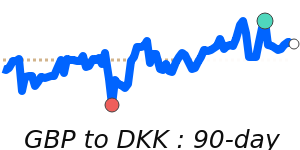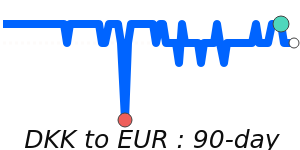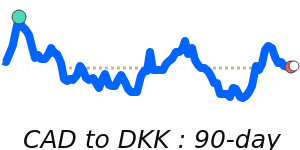![]()
![]() The recent exchange rate forecasts for GBP to DKK indicate a cautious outlook amid ongoing economic and political factors influencing the British pound. Analysts note that the pound has traded relatively sideways recently as local elections in the UK took place, contributing to a sense of uncertainty. With no major economic data expected, experts suggest that the pound may lack clear direction in the near term.
The recent exchange rate forecasts for GBP to DKK indicate a cautious outlook amid ongoing economic and political factors influencing the British pound. Analysts note that the pound has traded relatively sideways recently as local elections in the UK took place, contributing to a sense of uncertainty. With no major economic data expected, experts suggest that the pound may lack clear direction in the near term.
The imposition of a 10% tariff by the U.S. on imports from the UK, part of a broader trade confrontation under former President Trump, has introduced additional pressure on the GBP. Economists highlight that such tariffs can weigh heavily on export-driven economies, potentially affecting the UK’s economic performance and investor confidence. Given the pound's sensitivity to political and economic shifts, the lingering effects of Brexit and domestic policies continue to be pivotal in shaping market sentiment surrounding the currency.
Currently, the GBP is trading at 8.7659 DKK, which is 1.2% below its three-month average of 8.8691 DKK. Analysts point out that this reflects the pound's relatively stable range, fluctuating between 8.5991 and 9.0442 DKK over the past months. The market’s volatility is further amplified during European and U.S. trading hours, as international interest in the UK’s economic trajectory remains high.
On the other side, the Danish kroner is anchored to the Euro, providing a stabilizing effect that limits its fluctuations. Experts mention that while this fixed exchange rate policy offers predictability for businesses and consumers in Denmark, it also restricts the Danish central bank's ability to adjust its monetary policy in response to economic changes. Frequent interventions have been necessary as the DNB navigates fluctuations influenced by external markets and interest rates.
Looking ahead, the GBP's future against the DKK largely hinges on the UK’s economic recovery, evolving trade agreements, and the potential shifts in monetary policy from the Bank of England. Analysts emphasize that sustaining investor confidence will be crucial, particularly as the UK works to establish its post-Brexit position in the global landscape. Overall, while immediate pressure exists, the long-term performance of the pound will be shaped by how these factors converge in the coming months.
Loading rates...
|
|
|
DKK to GBP Market Data
Danish krone (DKK) to British pound (GBP) market data - latest interbank exchange rate, trend, chart & historic rates.
Compare & Save - Danish krone to British pound
Exchange rates can vary significantly between different currency exchange providers, so it's important to compare Danish krone (DKK) to British pound (GBP) rates from different sources before making a conversion.
Use our DKK to GBP calculator to see how much you could save on your international money transfers. makes it easy to compare the Total Cost you are being charged on Krone to Sterling currency rates and the possible savings of using various providers.
| Date | DKK/GBP | Period |
|---|---|---|
19 Apr 2025 | 0.1148 | 2 Week |
02 Feb 2025 | 0.1117 | 3 Month |
03 May 2024 | 0.1150 | 1 Year |
04 May 2020 | 0.1174 | 5 Year |
06 May 2015 | 0.0993 | 10 Year |
08 May 2005 | 0.0916 | 20 Year |
Will the Danish krone rise against the British pound?
It is almost impossible to predict what an exchange rate will do in the future, the best approach is to monitor the currency markets and transact when an exchange rate moves in your favour.
To help with this you can add DKK/GBP to your personalised Rate Tracker to track and benefit from currency movements.
Rather than requiring you to set a target rate, our Rate Alerts keep you informed of recent trends and movements of currency pairs.
Add rates to your Rate Tracker and select to receive an daily email (mon-fri) or when a rate is trending
Related exchange rate forecasts
BER articles that mention the British pound (GBP):
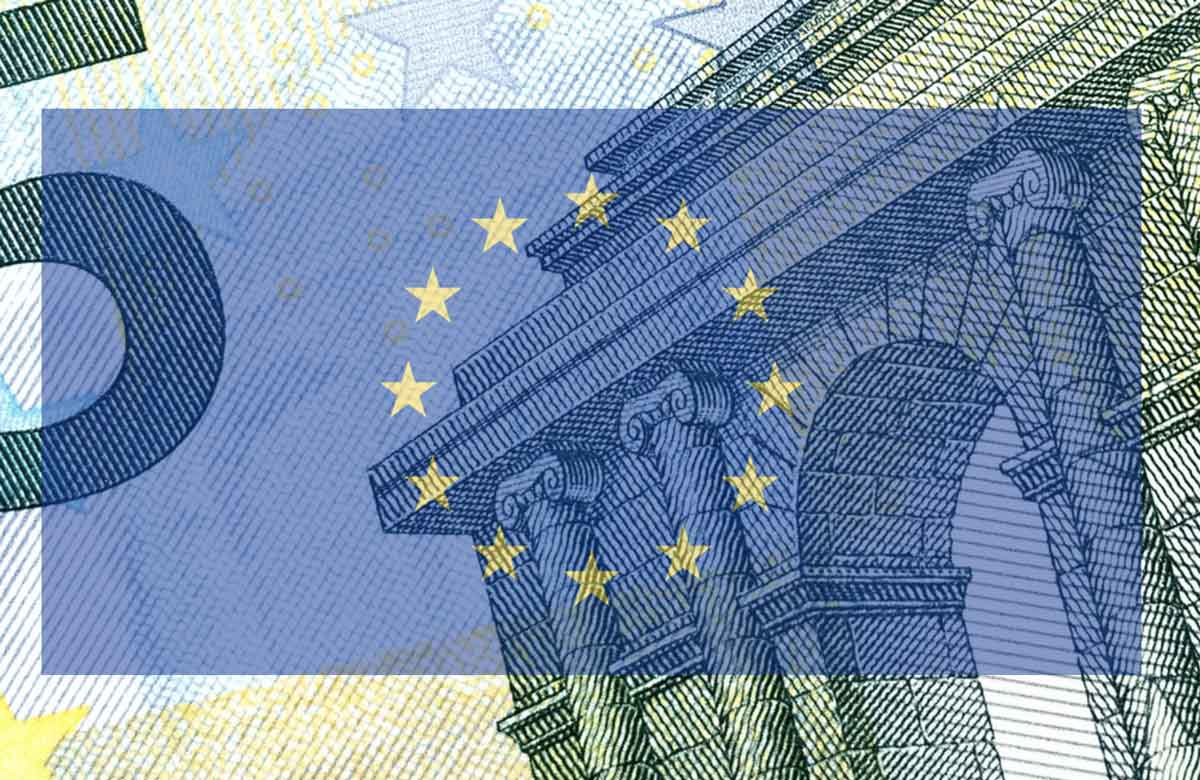
The U.S. Dollar Is Losing Ground to the Euro — And the World Is Watching
Deutsche Bank forecasts a significant weakening of the US dollar in the coming years, potentially reaching its lowest level against the euro in over a decade.
Wise Review: Is It the Best Way to Transfer Money Internationally?
The Wise Account allows users to hold and convert funds in 40 different currencies and send and spend internationally, all at the “real” exchange rate and with exceptionally low service fees. Users can also receive major-currency payments free of charge.

Global Currency Markets React to U.S. Tariffs and Economic Policies
Recent U.S. trade policies, including aggressive tariffs on auto imports, have introduced significant volatility in global currency markets, affecting major currencies such as the euro, British pound, and Japanese yen.
Further reading on the British pound (GBP) - Guides, Reviews & News from our research team.
Forecasts disclaimer: Please be advised that the forecasts and analysis of market data presented on BestExchangeRates.com are solely a review and compilation of forecasts from various market experts and economists. These forecasts are not meant to reflect the opinions or views of BestExchangeRates.com or its affiliates, nor should they be construed as a recommendation or advice to engage in any financial transactions. Read more
